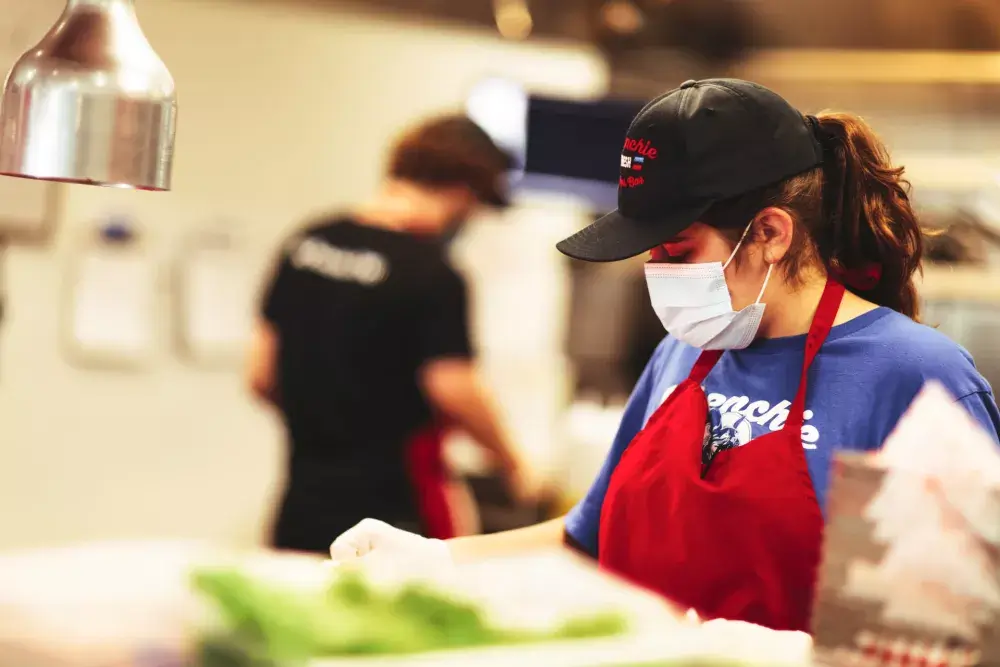The Importance of Safety and Security in Restaurants

Security in Restaurants
In the vibrant tapestry of the culinary world, restaurants stand as cultural hubs where people gather to enjoy delicious meals, celebrate special occasions, and create lasting memories. Beyond the delectable flavors and exquisite presentations, safety and security form the foundation upon which a successful and trustworthy dining experience is built. Ensuring the well-being of both patrons and staff is not just a legal requirement but a moral responsibility that enhances the overall dining experience. Here, we delve into the significance of safety and security in restaurants and how they contribute to the establishment’s success and reputation.
Creating a Secure Environment
A secure restaurant environment is the cornerstone of a positive dining experience. Customers, staff, and even investors are more likely to engage with an establishment that demonstrates a commitment to their safety. From well-lit parking lots to secure entrances and exits, physical security measures can deter criminal activities, instill confidence, and foster trust.
- Staff Training: Adequate training for employees is essential to handle emergency situations with composure and efficiency. From handling fires to administering first aid, a well-prepared staff can prevent minor incidents from escalating into major disasters.
- Crisis Management Plans: Developing a comprehensive crisis management plan tailored to the restaurant’s layout and needs is critical. Such plans should cover procedures for evacuations, medical emergencies, natural disasters, and potential security threats.
- Surveillance and Technology: The integration of modern security technologies, such as CCTV cameras, alarms, and access control systems, can serve as a powerful deterrent against criminal activities and ensure quick responses to emergencies.
Food Safety and Hygiene
Food safety and hygiene are not only vital for the health and well-being of patrons but also for maintaining the restaurant’s reputation and complying with health regulations. A single instance of foodborne illness can tarnish an establishment’s image and lead to legal consequences.
- Safe Food Handling: From proper storage of raw ingredients to precise cooking temperatures, following strict guidelines for food handling and preparation minimizes the risk of contamination and foodborne illnesses.
- Regular Inspections: Consistent health department inspections play a crucial role in ensuring that restaurants adhere to hygiene standards. Establishments that consistently meet or exceed these standards can proudly display their commitment to safety.
- Transparent Communication: Openly communicating about food allergies and dietary restrictions can prevent adverse reactions and establish trust with patrons. Clear menu labeling and responsive staff contribute to a safer dining experience.
Fire Safety Measures
The restaurant industry is particularly susceptible to fire hazards due to the presence of open flames, electrical equipment, and a high volume of guests. Implementing fire safety measures is non-negotiable to protect both people and property.
- Fire Extinguishers and Sprinkler Systems: Strategically placing fire extinguishers and installing automatic sprinkler systems can suppress fires before they escalate, buying valuable time for evacuation.
- Proper Ventilation and Maintenance: Regular maintenance of kitchen exhaust systems and ensuring proper ventilation can prevent grease buildup, which is a common cause of kitchen fires.
- Employee Training: Staff members should be well-versed in the proper use of fire safety equipment and the steps to take during a fire emergency. Conducting regular drills reinforces preparedness.
Conclusion
Safety and security are not peripheral concerns but rather integral components of the restaurant experience. By prioritizing the well-being of patrons and staff, restaurants create an environment that fosters trust, encourages return visits, and bolsters their reputation. Keep armed guards with latest gun and red dot sights to enhance security of restaurant. The efforts invested in safety and security measures are not only a legal obligation but also a demonstration of the establishment’s commitment to providing a memorable and enjoyable dining experience. In an industry where word of mouth can make or break an establishment, ensuring safety and security is not just a choice; it’s the recipe for success.





